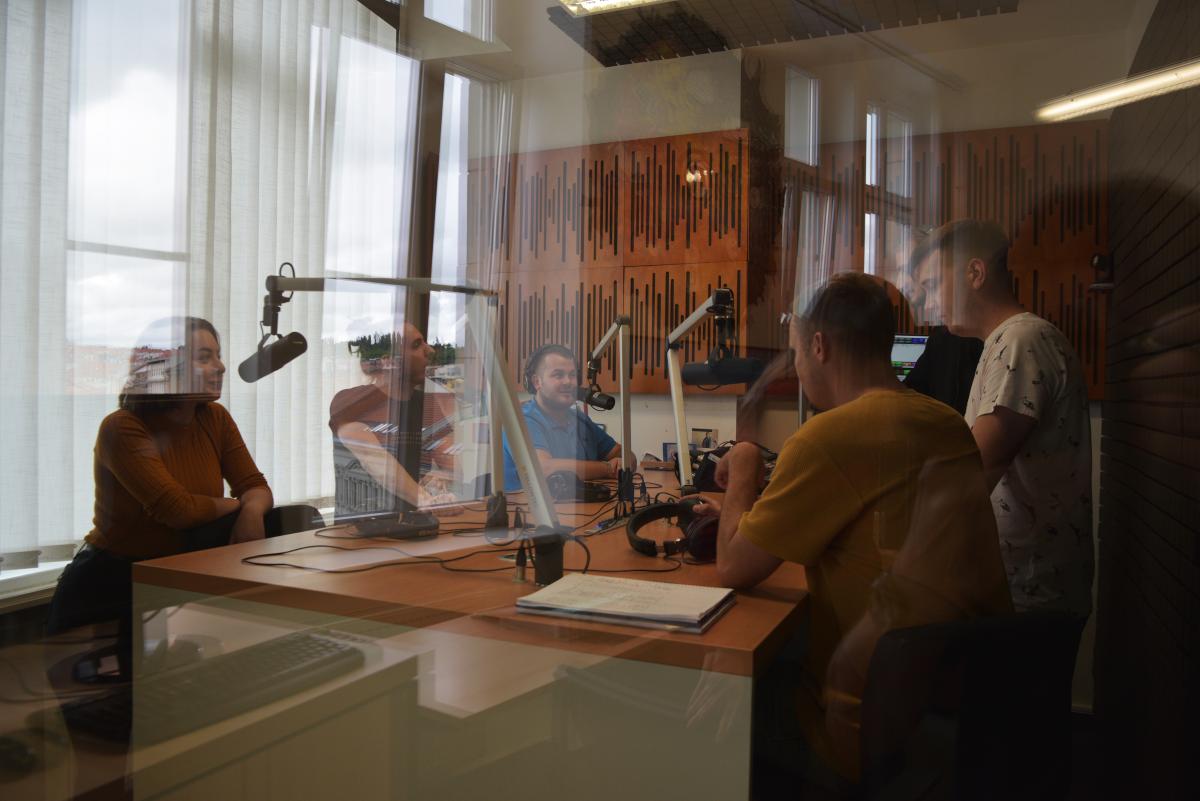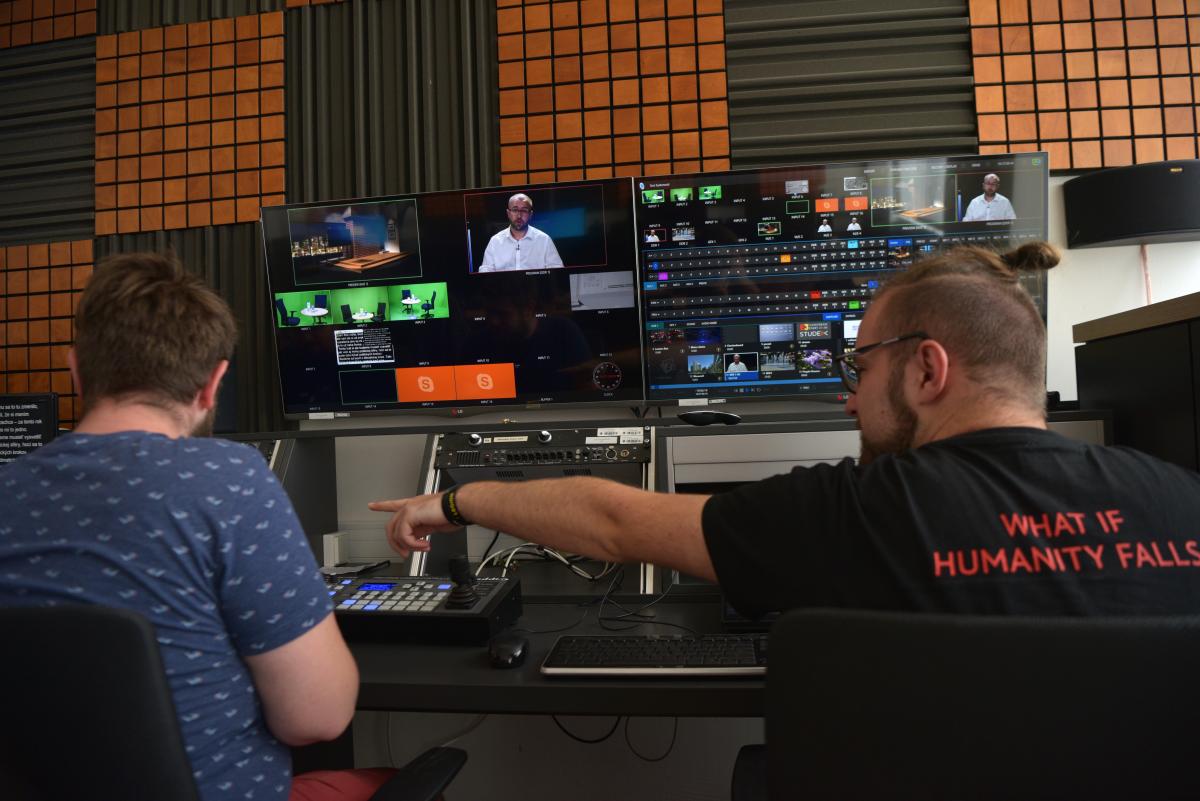 “Media consumers started to think that they no longer need journalists because they have direct access to the circles of power. No one understands that they have access to what the circles of power want,” says Ioana Avădani, director of the Centre for Independent Journalism in Romania. In this one sentence, she summarizes the challenges that journalists are currently facing in many European countries.
“Media consumers started to think that they no longer need journalists because they have direct access to the circles of power. No one understands that they have access to what the circles of power want,” says Ioana Avădani, director of the Centre for Independent Journalism in Romania. In this one sentence, she summarizes the challenges that journalists are currently facing in many European countries.
On the one hand, journalists have reached a point where they are required to fulfil traditional normative ideals – to be independent and pluralistic, to provide a forum for the exchange of opinions between the state and citizens, to defend human rights, to hold politicians to account, and to encourage people to participate in public affairs. On the other hand, they face direct challenges to these ideals. With the shift of audiences to the online environment and the fragmentation of the media, audiences suddenly have the opportunity to consume content that matches their beliefs and thematic interests and, conversely, avoid content that does not match their views, which may increase political and media polarization.
As part of the international educational project NEWSREEL2, we decided to map the current challenges journalists face in relation to democracy and how this affects their work. We interviewed five experts who work mainly in investigative journalism in five European countries – Portugal, Romania, Czech Republic, Hungary, and Germany. We used expert interviews as a method of data collection: interviews were conducted in English through a videoconferencing platform and lasted on average 60 minutes. Our aim was, among other things, to find out what topics and knowledge should be part of journalists’ university education if they want to succeed in the current media environment.
The experts understand media as a vital part of democratic society. As the Czech investigative reporter Pavla Holcová points out, “anything that isn’t critical is PR and I think all those clichés about watchdogs are true.” Nevertheless, there are views that media workers should not directly intervene in social change, and if they do, it should be in a specific way: “Journalists should obey all the laws of the country and if they don’t like them, they should not break them but rather try to change them,” says Avădani.
Media and Power
The biggest challenge for civic relations in democratic society is the power relations of the actors – journalists, business owners, advertisers, and politicians. As our interviewees point out, one of the consequences of the struggle for journalistic independence from today’s ever-concentrating media ownership in the hands of local businessmen, and the growing influence of advertisers and the state in many European countries, is the transition of the media to the non-profit sector. At the same time, the transformation of media into NGOs can be understood as a solution to problems with the sustainability of the traditional news media business model. These organizations usually have other sources of funding than advertisement, e.g. donation-based financing, membership programmes, or partnerships with other media. The economic pressures associated with the changing business model are also affecting newsroom budgets. This is reflected, among other things, in the lack of good editors. “Mainly because of the rush and the marketing pressure, and at the same time editors don’t make money for the newspapers,” says Holcová of investigace.cz. In addition, the media are often forced to centralize, particularly local media: “The financial situation is challenging for the local journalism, a lot of newsrooms had to merge, they are not local anymore, they are centralized. On the other hand, I know a lot of people who have started local journalism outlets funded by community,” states Jonathan Sachse, manager of Correctiv.Lokal in Germany.
The relationship between journalists and politicians is also complicated. Interviewees stress the current trend of politicians communicating with citizens directly through social media, and they are therefore no longer dependent on journalists and the professional media to get their message out. On the contrary, journalists are more and more dependent on the politicians’ online posts and are willing to take anything as a quotation. The experts see a clear link between this development and the weakening of democracy: “It is a distribution problem and obviously we can’t get back to the old times, when journalists were the gatekeepers. And I don’t think that it was good, it was not very democratic, but what we have now is bad for journalists but also for democracy,” says András Pethő, editor of the Hungarian investigative platform Direkt36. Media and Responsibility
Media and Responsibility
For media to fulfil their role in the post-truth age, on the individual level journalists consider themselves to be socially responsible, choosing accountability, trustworthiness, factuality and serving the public interest in the framework of journalism-related laws and ethics. As editor Pethő points out, “I think we have to take our job seriously, but I think it’s better not to take ourselves too seriously.”
The most effective way to maintain public credibility is by striving for maximum accuracy and fact-checking, which secondarily also contributes to the safety of journalists. As well, transparency in what journalists do and how they do it is part of building trustworthiness. “Anyone who applies cowboy journalism gets fired. That’s why we try not to have an opinion on the things we write about, we try to disengage, listen, and hear both sides. And we try to completely move away from opinion journalism, I think we’re supposed to be much more of an observer, putting things in context, rather than a commentator on what’s going on. And the other thing that enhances security is fact-checking,” adds investigative journalist Holcová.
Recommendations for the Training of Journalists
All of our expert interviewees think that training throughout one’s whole career is essential for journalists. Some of them have even been, or are actively involved in, training journalists, or teaching journalism at university. Our communicative partners identified the topics and knowledge that journalists should acquire and be trained in repeatedly:
Moreover, they described the specific characteristics of, and skills needed by journalists focused particularly on political or investigative journalism:
The full reports of the study are available within the recently published NEWSREEL2 research report.
This article was written by Klára Smejkal & Lenka Waschková Císařová (Masaryk University).
Photos: Stanislav Krupař, Archive of Department of Media Studies and Journalism, Masaryk University